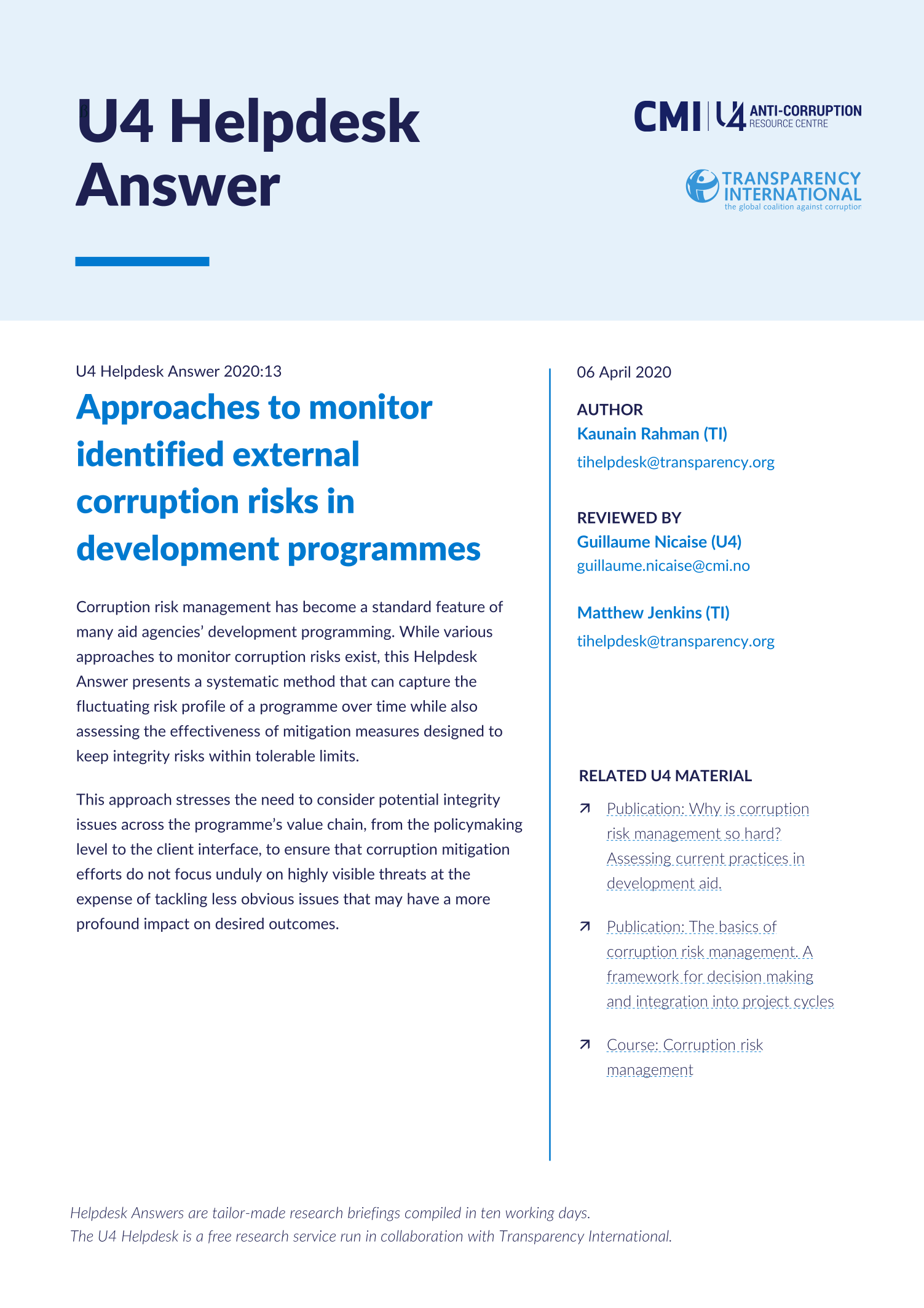Main points
- Effective corruption risk management does not end with risk identification but rather the development of appropriate mitigation measures and indicators to track risks.
- Development practitioners must adapt standard guidance to their specific needs, developing bespoke tools to identify, assess, mitigate and monitor corruption risks across the entire project cycle.
- Value chain analysis helps to identify less obvious corruption risks that can have perfidious effects on programme outcomes.
- Monitoring the incidence of corruption is notoriously difficult, but a combination of different kinds of indicators offers a relatively reliable insight into the effectiveness and performance of anti-corruption safeguards designed to ensure transparency, accountability and participation in development programming.


